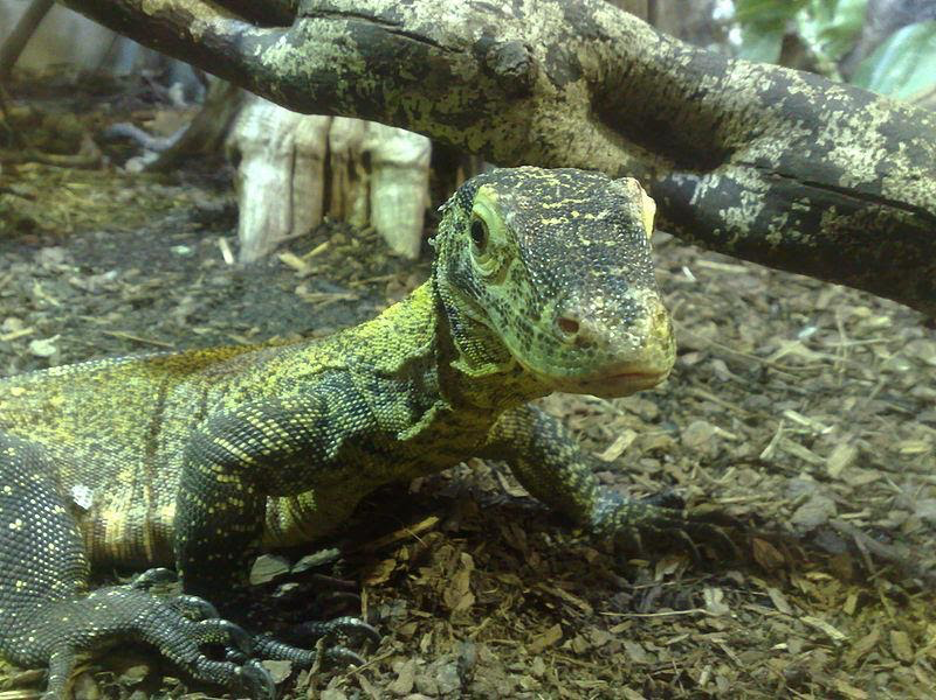By Priscila Santa Rosa
Parthenogenesis
(Noun. /par-theh-no-JEH-ne-sis/)
What does it mean?
Parthenogenesis is a type of asexual reproduction in animals where the egg can develop without being fertilized by a sperm. Parthenogenetic embryos have no father, which means that they have the genetic material only from the mother. Parthenogenesis is a common type of reproduction in some species of invertebrates like bees, wasps, scorpions, and ants; In vertebrates, parthenogenesis does not occur often, but it has been reported in lizards, snakes, and birds.

A Komodo dragon born by parthenogenesis at Chester Zoo in Cheshire, England (2008). Image source.
A Komodo dragon born by parthenogenesis at
Chester Zoo in Cheshire, England (2008). Image source.
How do I use it in a sentence?
The New England Aquarium reported an anaconda giving birth to babies that developed by parthenogenesis.
Etymology
The term is derived from two Greek words: parthenos (virgin) and genesis (origin), together meaning “the birth from a virgin.”
Fields of study in which this word is commonly used
Biology, entomology, genetics, herpetology, ornithology
